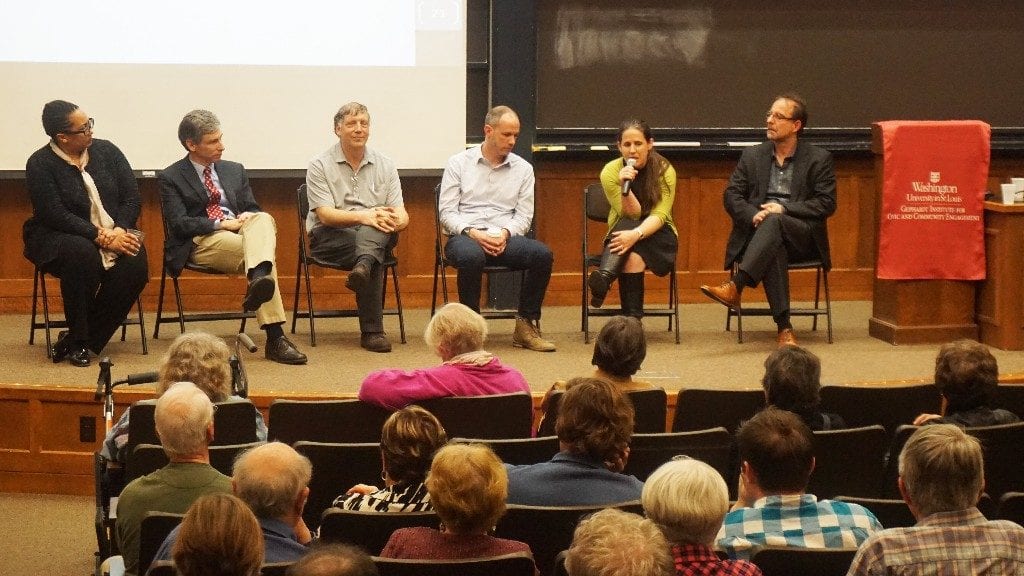
The political rise of Donald Trump, and his ascendancy into the presidency, represents one of the most surprising and contentious events in American history. Civic education and engagement are increasingly critical as individuals and communities consider their role in the democratic process.
On March 9, the Gephardt Institute collaborated with a team of faculty to offer a symposium titled “American Democracy and the Rise of Donald Trump: An Interdisciplinary Perspective.” The symposium commenced with a similar emphasis on the complex state of democracy and political engagement. “The United States democratic state hasn’t been so divided and contentious since the Civil War and its aftermath,” asserted Adrienne Davis, vice provost of the university and William M. Van Cleve professor of law. “Slavery may have been the first test of our democratic institutions, but it certainly is not the last.”
Davis and five other Washington University professors considered these dynamics from a number of distinct yet interdisciplinary perspectives. They spoke to over 150 students, faculty, and community members regarding the contentious political climate and the importance of exercising our political rights. Peter Kastor, professor and chair of the department of history and professor of American culture studies, discussed how, although unforeseen, President Trump’s election plays into larger political patterns manifested over the course of American history. Alan Lambert, associate professor of psychological & brain sciences, addressed how emotions like fear and anger factored into the election, while professor of sociology David Cunningham focused on racial extremism and political polarization in modern government. Associate professor of political science Betsy Sinclair analyzed how voters establish their political preferences, and Steven Fazzari, Bert A. and Jeanette L. Lynch distinguished professor of economics, chair of the department of sociology, and associate director of the Weidenbaum Center explored how the economic disadvantages of the American middle class shaped the election. Several themes emerged across the speeches, including a concern for truth through data and the need for interdisciplinary approaches to thinking about and responding to our changing democracy.
The symposium was co-sponsored by the Gephardt Institute for Civic and Community Engagement; the Weidenbaum Center on the Economy, Government, and Public Policy; the Department of History; the Department of Political Science; the Department of Psychological & Brain Sciences; and the Department of Sociology.
To view the full symposium, click here.
To view abstracts of each presentation, click here.